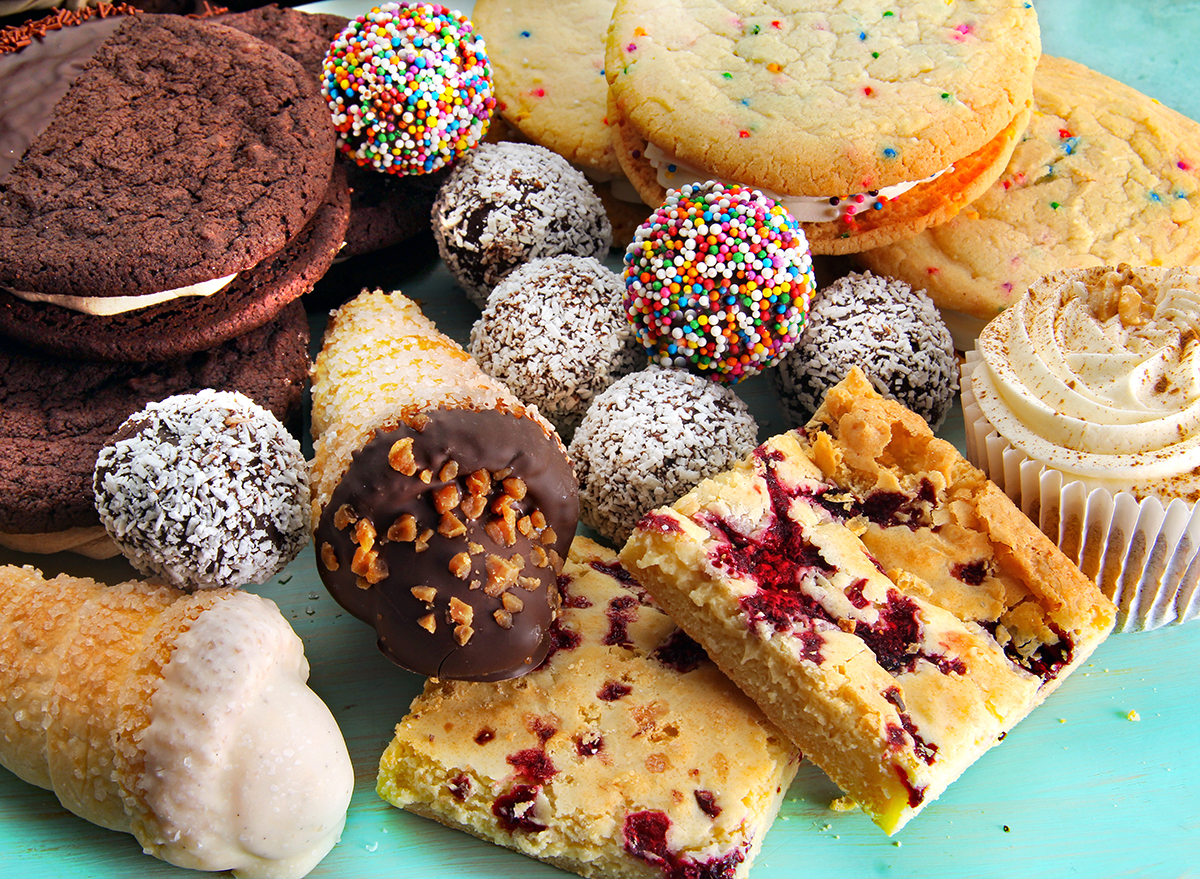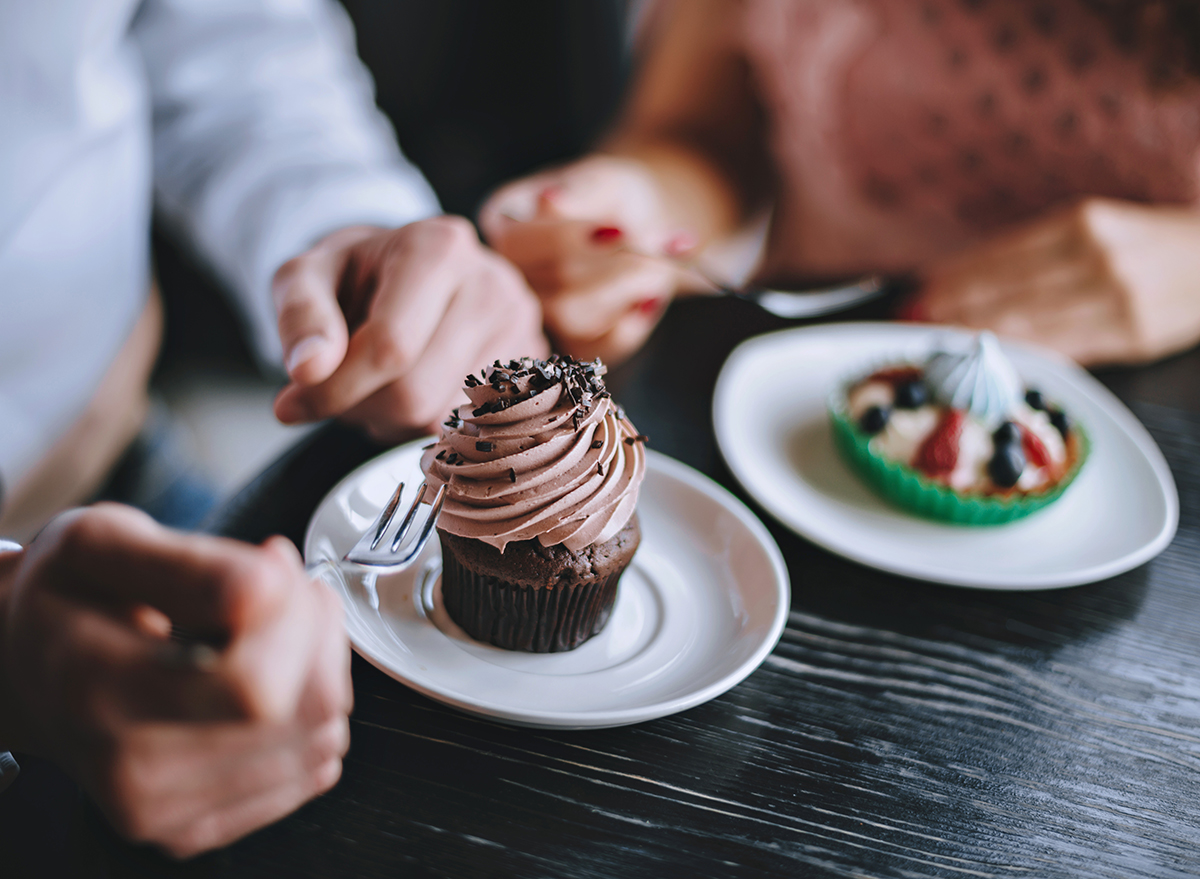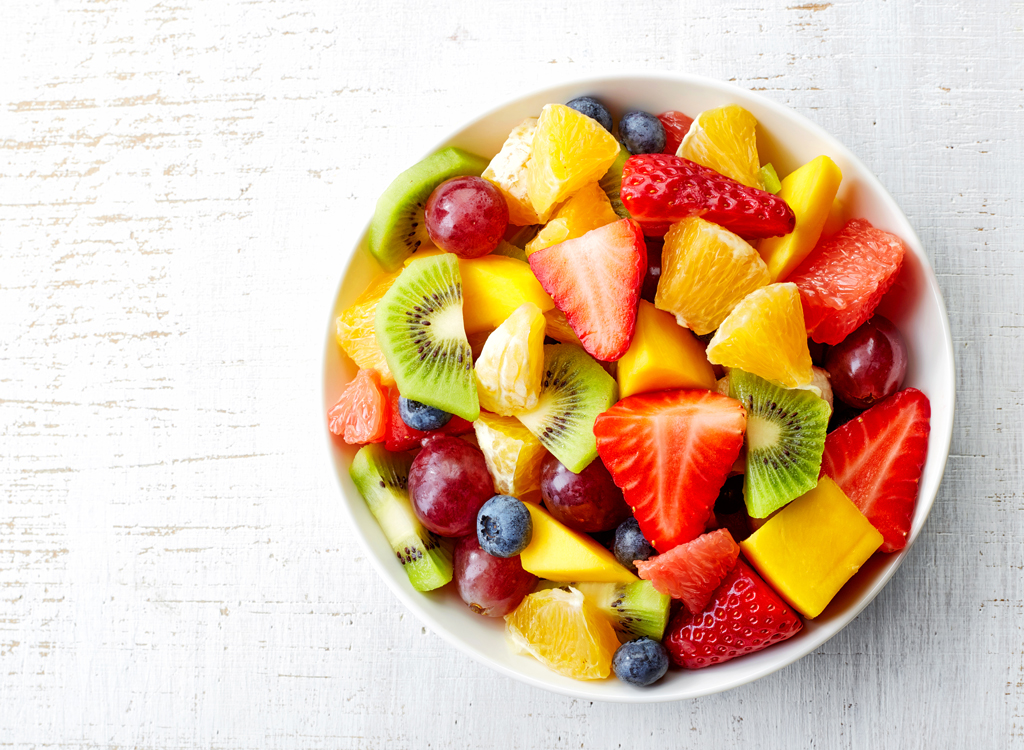7 Bad Dessert Habits That Lead to Belly Fat

Losing weight in your stomach area, and keeping it off, can be a tricky balance. Sometimes even after you've made sure to work out regularly and change up our diet, belly fat still overstays its welcome. And then you're left to wonder what you're doing wrong, or what you could be doing differently.
It may be helpful to look at how you exactly approach dessert in your everyday life. We sat with Amanda Sevilla, RD., to talk about some of the common mistakes people make when it comes to eating dessert, and how these bad dessert habits could be leading to that unwanted belly fat.
You're eating too much "bad" fat.

You often associate eating delicious desserts with eating large quantities of sugar, but sometimes you forget about the heavy amounts of fat that can be used as well. Sevilla warns that "when we eat desserts, we normally think we're just eating carbs. However, there is a substantial amount of fat in the form of butter and oil that is very easy to eat large quantities of without realizing."
Although some fats such as coconut oil and avocados can be healthy for our bodies, it's recommended that we always try to limit our intake of trans fats (hydrogenated oils and butter) as much as possible. According to a study in Nutrition Journal, trans fats not only greatly raise your risk of cardiovascular disease, but they can also drastically increase inflammation in the body. These trans fats in your desserts are sneaky, so it's likely that they could be causing belly fat.
You're eating too much refined sugar and not enough natural sweeteners.

This one may seem obvious to some who are trying to lose weight, but sometimes it's easy to forget all of the ways that refined sugar can harm your body, especially the stomach area. Refined sugars include cane sugar, molasses, raw sugar, and high fructose corn syrup.
Sevilla says that most people who eat a lot of refined sugar "become addicted because of their highly rich profile and the fact that it literally lights up more pleasure centers in the brain." These sugars will absolutely keep us coming back for more, even if your body has had enough.
It's also important to note that refined sugar directly affects belly fat because of the signals it sends to the body. According to Loma Linda University Health, sugar promotes fat storage in the body, as well as spikes insulin levels. When your insulin levels are spiked, your body use this signal as a message to store fat.
Looking for more helpful tips? Your ultimate restaurant and supermarket survival guide is here!
You're eating dessert at the wrong time.

The big question among dessert lovers is, "am I eating dessert too late?"
Most likely, the answer is yes.
Eating dessert (or any food for that matter) too late at night can cause a few different issues in your body. For one, "if you're eating too much processed sugar before bed," says Sevilla, "your sleep will be disrupted as your body works to digest everything." This can be bad news if you're trying to lose weight, as sleep is an important component.
Sevilla also points out that if you're calorie counting throughout the day in order to lose weight, you may be less inclined to count your dessert calories if you're eating really late at night.
You may be emotionally eating.

Whether you're trying to lose belly fat or not, it's always helpful to check in with yourself to see if you could be emotionally eating. Emotional eating, according to Sevilla, is usually done with refined sugars because of the way they ignite our pleasure centers in the brain. If we are emotionally eating, then we are most likely not paying attention to our calorie goals or what our body really needs.
You're not getting enough fiber.

Another important factor in weight loss, especially in the belly area, is getting enough fiber. According to a study done by Joanne L. Slavin in Science Direct, dietary fiber is directly correlated with weight loss and management. Fiber breaks down nutrients in the body, as well as keeps you full longer, and Sevilla states that "fiber is what feeds the micro bacteria in our gut to keep it healthy and strong."
Sevilla also points out that this is the reason it's important to eat foods that are "whole" and unprocessed whenever you can. When foods are in their "natural" state, she says, "then they are in their form that the body can recognize better, which helps our bodies process and break down the food we consume." In most processed desserts, there is very little fiber to be found, which can add trouble to your weight control.
You're ignoring your body.

Simply put, sometimes your body may not actually want the dessert! Sevilla believes that one of the most important components of losing weight and enjoying dessert is really checking in with yourself to ask if your body truly feels the dessert is worth the extra calories, sugar, and fat.
"Really ask yourself if you are hungry or if having a dessert is something that you would just like to enjoy," she says. "If this is the case, try just taking as many bites as you need in order to enjoy the sweetness." Usually the first bite is the best anyway!
You're not exploring different types of desserts.

And by this, we mean desserts that can be made without refined sugars or fats! Think about it—what if you could enjoy dessert and focus on your weight loss goals at the same time? We talk a lot about desserts that are high in processed carbs, refined sugars, and trans fats. But what about the natural sweetness that can be found in healthier foods? Sevilla mentions that if you have a sweet tooth, try incorporating more fruit into your diet.
"Fruit is not the same as a candy bar, but it has been touted as nature's candy," she says. "It comes with fiber, protein, a small amount of fat, a lot of vitamins and minerals and water that help, all together, keep a person satisfied."
If fruit isn't cutting it for you, try finding a dessert at home that you can make with natural maple or honey instead of refined sugar, and a healthier fat like coconut oil instead of vegetable oil.








